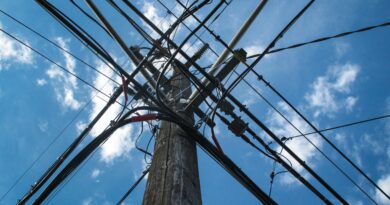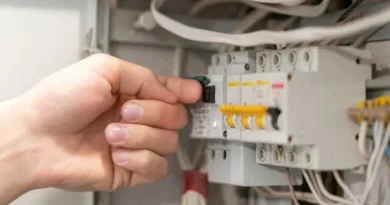Unveiling the Power of Electrical Testing in Delhi: Ensuring Safety and Reliability
Introduction
In today’s fast-paced world, electrical systems play a crucial role in powering our homes, businesses, and industries. However, with great power comes great responsibility. Ensuring the safety and reliability of electrical installations is of paramount importance to prevent accidents, reduce downtime, and safeguard lives. In Delhi, a city known for its bustling urban environment and rapid development, the need for thorough electrical testing is more critical than ever. This article dives deep into the power of electrical testing in Delhi, shedding light on its significance, benefits, and the key factors to consider for a comprehensive testing strategy.
The Significance of Electrical Testing
Electrical testing is a systematic process of assessing the condition and performance of electrical systems, components, and equipment. It involves a range of tests and inspections to identify potential faults, weaknesses, or non-compliance with safety standards. In Delhi, where the demand for electricity is ever-increasing, electrical testing holds immense significance. Here are the key reasons why electrical testing is vital:
1. Safety Assurance
Safety is the foremost concern when it comes to electrical installations. Faulty wiring, overloaded circuits, or damaged equipment can lead to electrical fires, shocks, or even fatal accidents. Through comprehensive testing, potential hazards can be identified and rectified, ensuring the safety of individuals and property.
2. Compliance with Regulations
Electrical testing helps ensure compliance with national and international electrical regulations and codes. In Delhi, where strict safety standards are in place, regular testing is essential to meet regulatory requirements. Compliance not only mitigates legal risks but also demonstrates a commitment to safety and responsible electrical practices.
3. Reliable Performance
Reliability is a key factor in any electrical system. Whether it’s a residential building, commercial establishment, or industrial facility, uninterrupted power supply is essential. By conducting regular testing, potential issues such as voltage fluctuations, poor grounding, or equipment failure can be detected early, allowing for timely repairs or replacements. This, in turn, minimizes downtime, improves operational efficiency, and reduces the risk of costly breakdowns.
4. Energy Efficiency
In an era focused on sustainability and energy conservation, electrical testing plays a significant role in optimizing energy usage. Through testing, inefficient equipment, power leaks, or energy losses can be identified, enabling corrective measures to be taken. By addressing these issues, businesses and individuals can reduce their energy consumption, contribute to environmental preservation, and lower utility costs.
The Key Elements of a Comprehensive Electrical Testing Strategy
To unleash the full potential of electrical testing in Delhi, it is essential to implement a comprehensive strategy that covers all critical elements. Here are the key factors to consider:
1. Visual Inspections
Visual inspections are the first step in electrical testing and involve a detailed examination of the electrical system, including cables, connectors, switchgear, and control panels. This helps identify any visible signs of wear and tear, loose connections, or damaged components that may require immediate attention.
2. Voltage Testing
Voltage testing ensures that electrical systems are operating within safe voltage ranges. It helps identify overvoltages, undervoltages, voltage imbalances, and irregularities in power supply. By conducting voltage tests, potential risks to equipment and personnel can be mitigated.
3. Circuit Breaker Testing
Circuit breakers are critical for protecting electrical circuits from overloads and short circuits. Regular testing of circuit breakers ensures their proper functioning, responsiveness, and coordination. Faulty circuit breakers can result in electrical failures, disruptions, and safety hazards.
4. Insulation Resistance Testing
Insulation resistance testing measures the effectiveness of electrical insulation in preventing current leakage. By evaluating insulation resistance, potential faults such as moisture ingress, degraded insulation, or damaged cables can be identified. This test is crucial for ensuring the integrity and safety of electrical systems.
5. Grounding System Testing
Proper grounding is essential to protect against electrical faults and ensure electrical stability. Grounding system testing involves measuring the resistance and continuity of grounding electrodes, conductors, and connections. It helps identify inadequate grounding, high resistance, or poor bonding, which can lead to electrical hazards.
6. Thermal Imaging
Thermal imaging uses specialized cameras to detect variations in temperature. By conducting thermal imaging tests, hotspots, overheating, and abnormal temperature patterns in electrical equipment can be identified. This helps prevent equipment failures, electrical fires, and potential safety risks.
7. Power Quality Analysis
Power quality analysis examines the characteristics of electrical power, including voltage levels, frequency, harmonics, and waveforms. By assessing power quality, issues such as voltage sags, transients, harmonic distortions, or power factor problems can be detected. Improving power quality enhances equipment lifespan, reduces energy waste, and ensures optimal performance.
Conclusion
In conclusion, electrical testing is an indispensable practice for ensuring the safety, reliability, and efficiency of electrical systems in Delhi. By adhering to a comprehensive testing strategy that encompasses visual inspections, voltage testing, circuit breaker testing, insulation resistance testing, grounding system testing, thermal imaging, and power quality analysis, potential risks can be mitigated, compliance can be achieved, and energy efficiency can be optimized. Embracing the power of electrical testing is a proactive step towards creating a safer, more reliable electrical infrastructure that can keep pace with Delhi’s rapid growth and contribute to the overall well-being of its residents and businesses.



